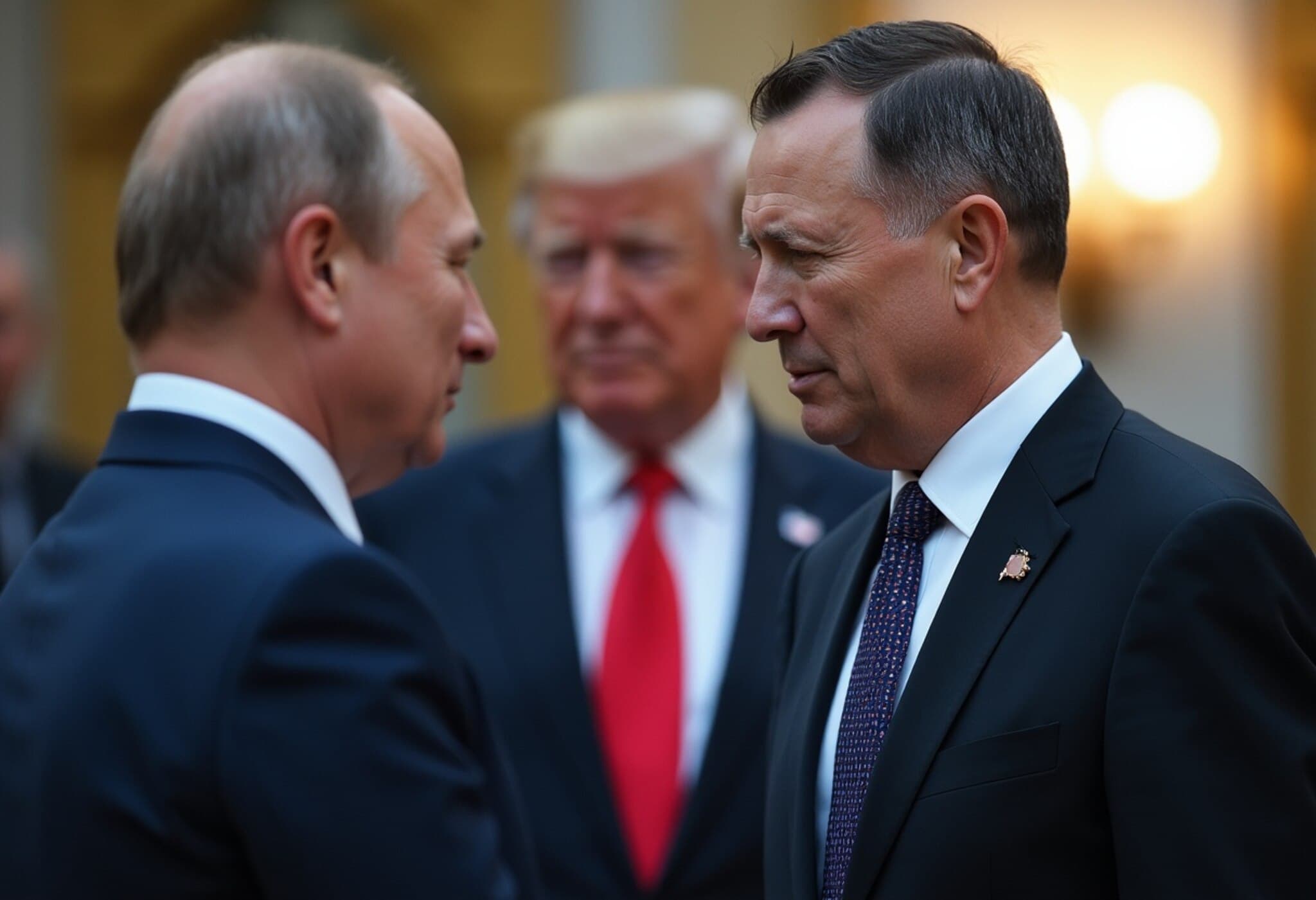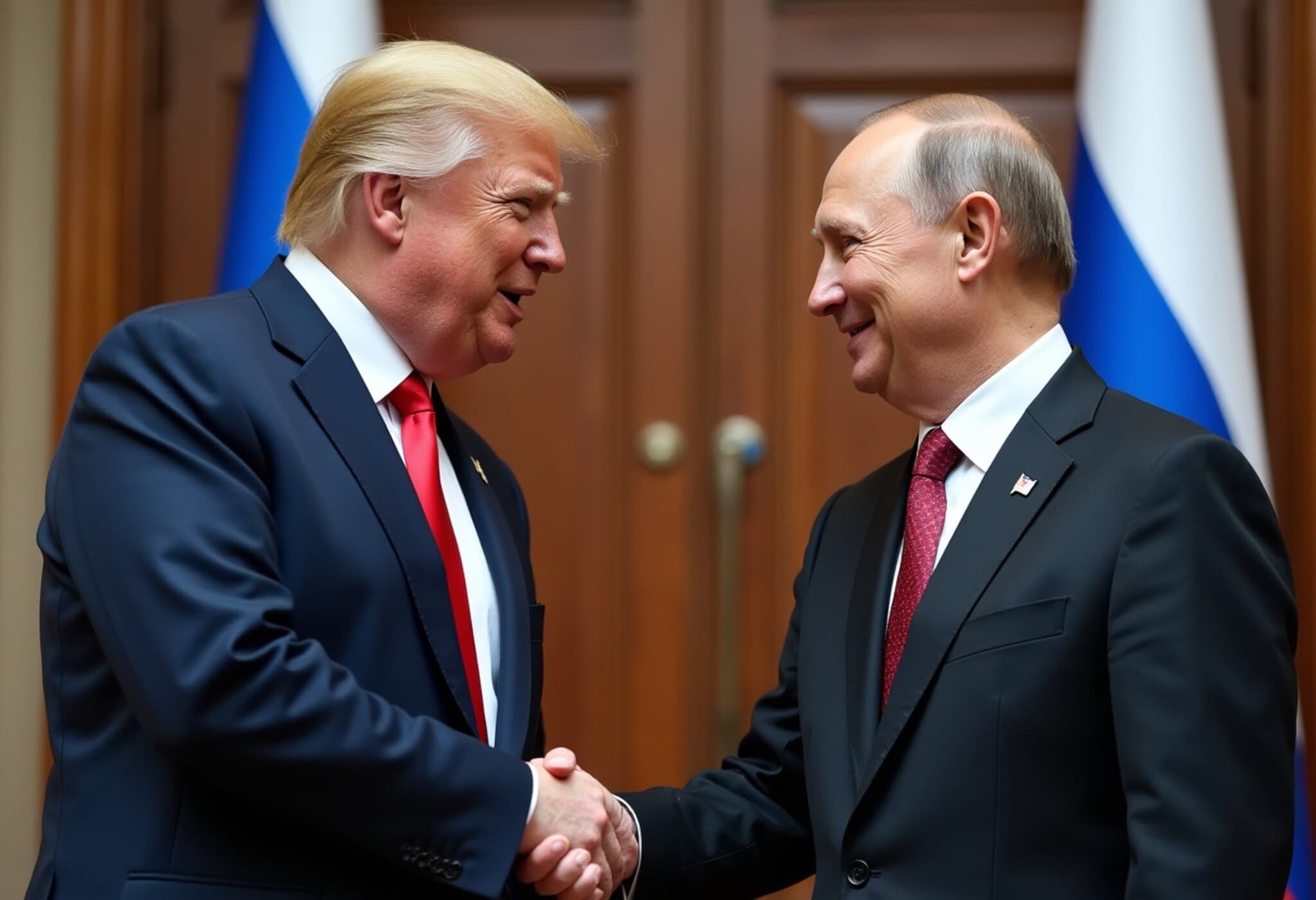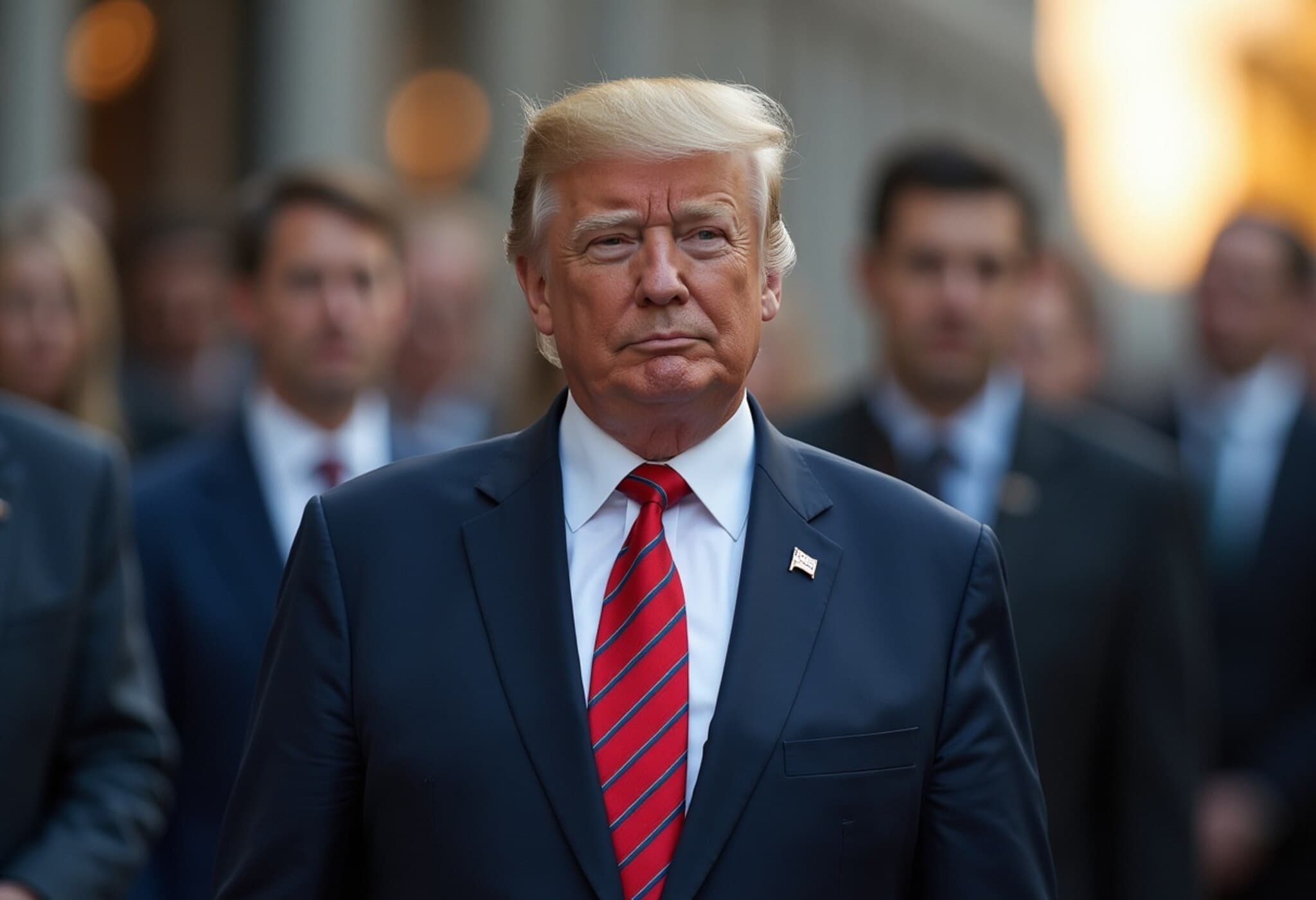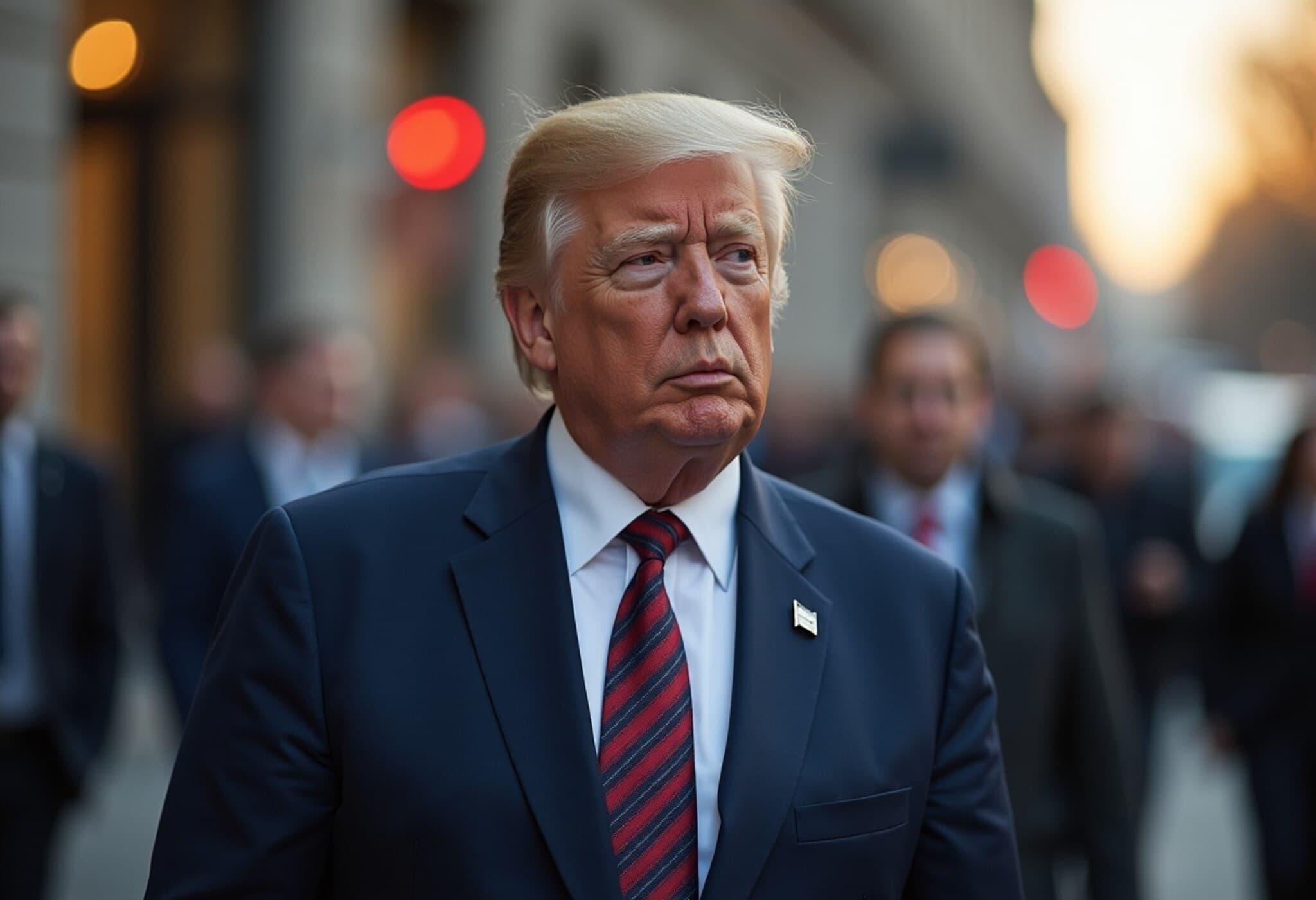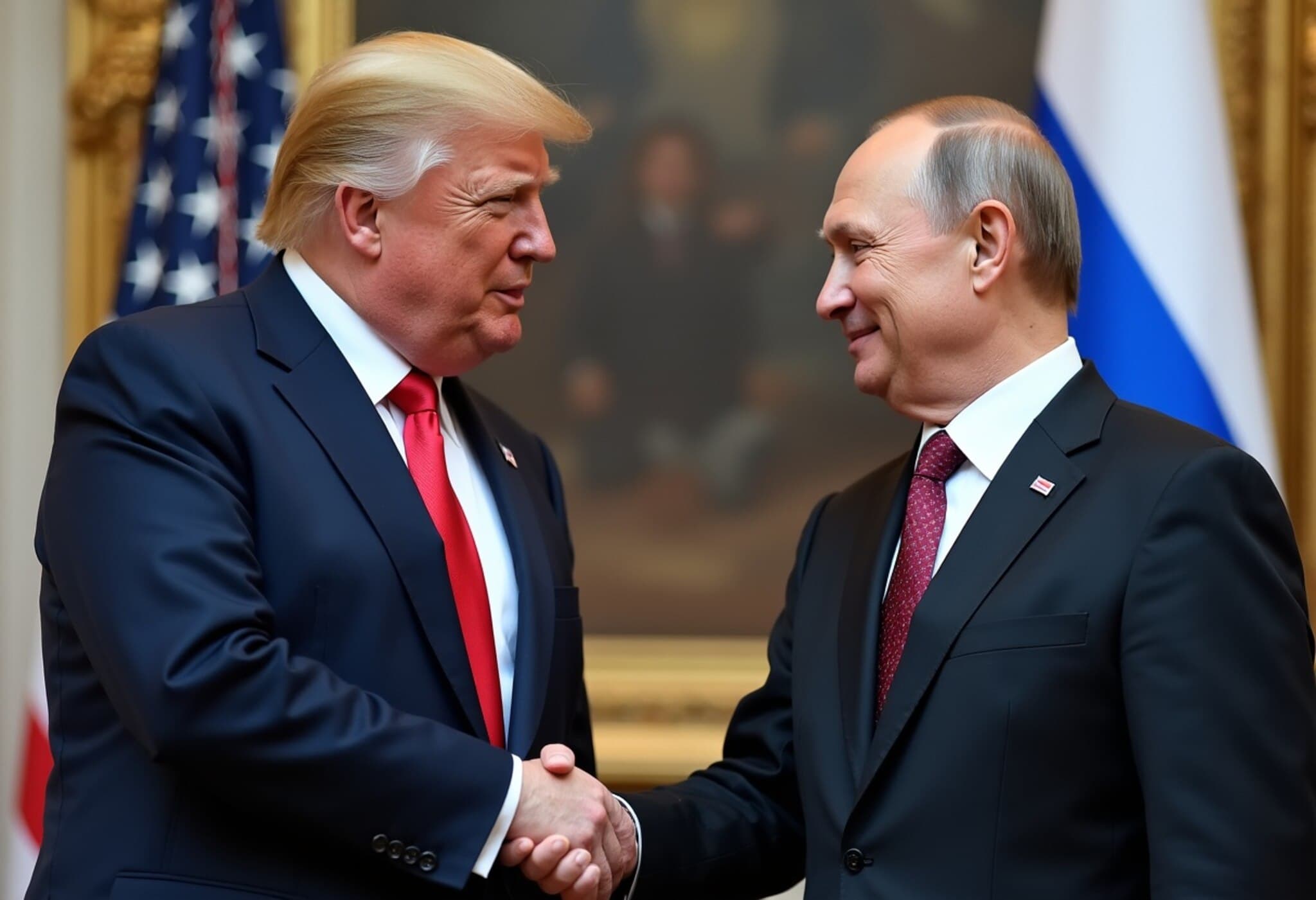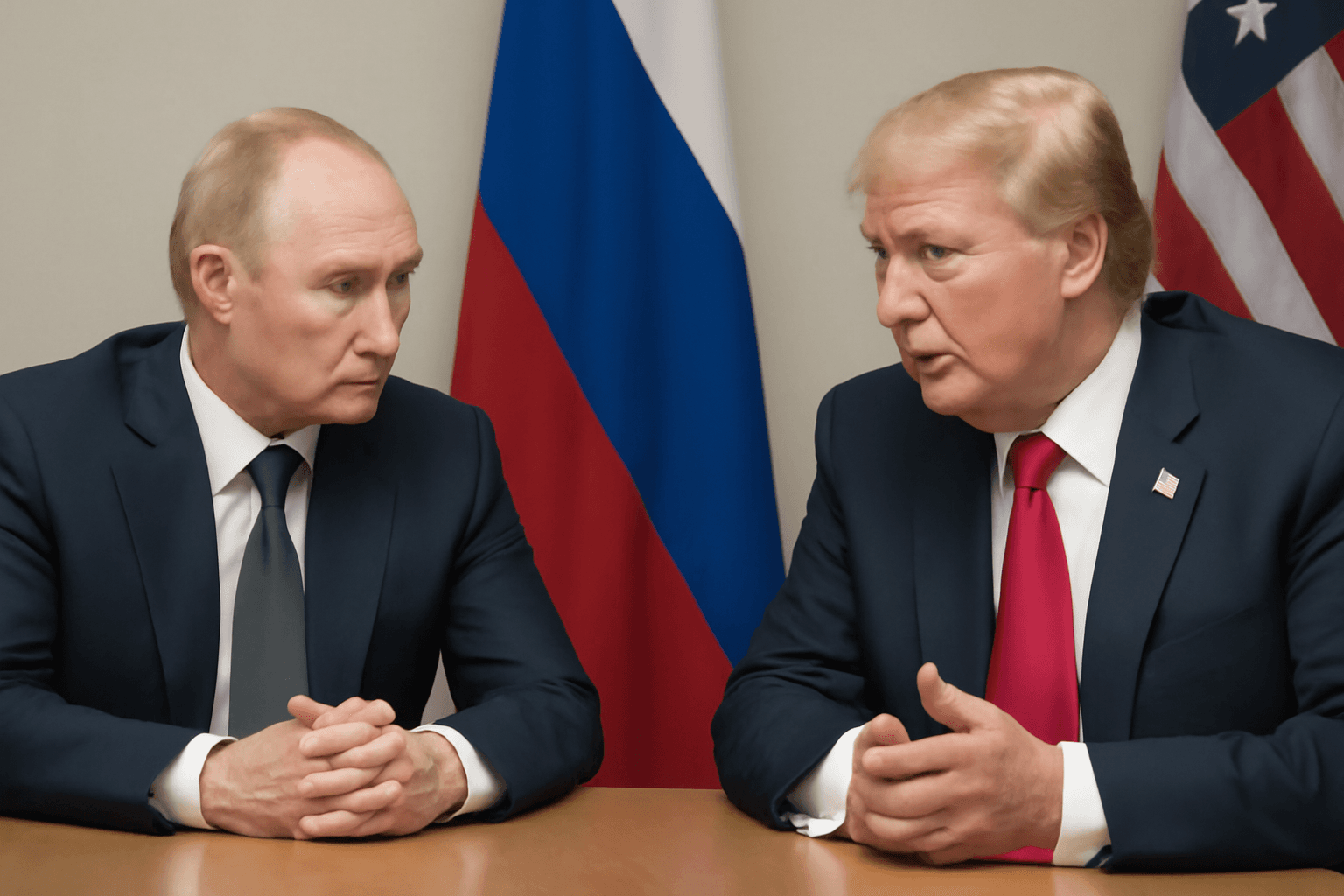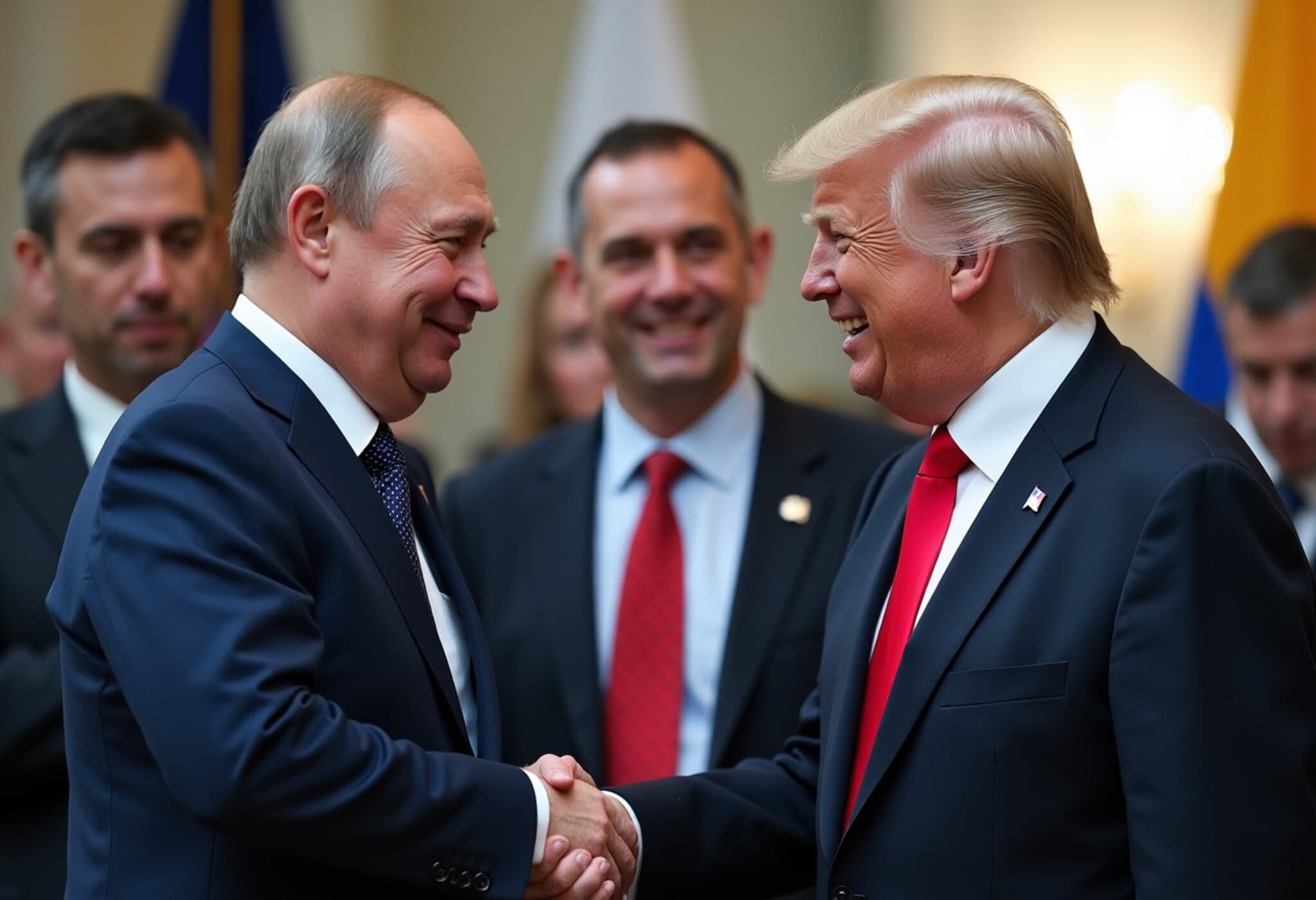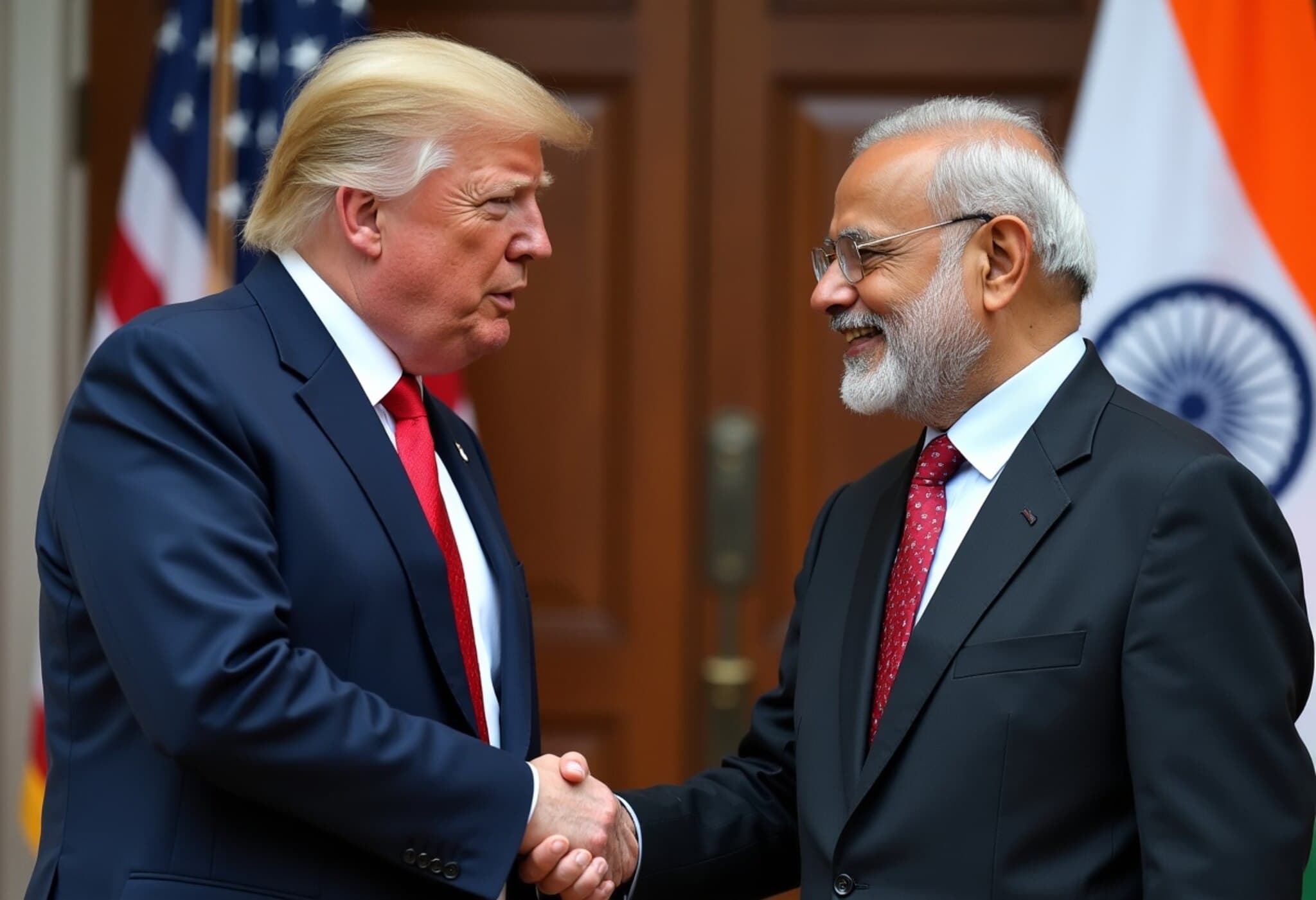Ukrainian President Zelenskyy Insists on Inclusion in Peace Talks Before Alaska Summit
As global attention turns to the approaching Alaska summit between Russian President Vladimir Putin and former US President Donald Trump, Ukrainian President Volodymyr Zelenskyy delivered a resolute message: peace agreements excluding Ukraine are inherently flawed and destined to fail.
Peace Discussions Cannot Ignore Ukraine’s Role
Speaking via a message on the Telegram platform, Zelenskyy emphasized the non-negotiable nature of Ukraine’s territorial integrity, which is protected by its constitution. His declaration underscores the deep concerns in Kyiv about being sidelined in negotiations that would profoundly affect the nation’s sovereignty and future.
"Peace without Ukraine is against peace," Zelenskyy declared, highlighting that any peace proposals reached without Kyiv’s direct involvement amount to “dead solutions”. This blunt assessment underlines the growing apprehension surrounding the upcoming summit scheduled for August 15, where Putin and Trump intend to meet on US soil.
Context: A Pivotal Moment Amid a Protracted Conflict
The war in Ukraine, now stretching beyond three years, has already led to tens of thousands of casualties and significant geopolitical upheaval. The Alaska summit represents a rare opportunity for dialogue, but the risk remains that talks may fail to address the core issues if Ukraine’s voice is diminished or ignored.
Reports suggest that Ukrainian officials are wary of any deal that might recognize Russia’s control over occupied territories de facto, despite military realities. Zelenskyy was explicit in affirming Ukraine’s refusal "to give Russia any awards for what it has done" and reiterated that Ukrainians will not surrender their lands to an occupier.
The Risks of Marginalizing Kyiv
Concerns have mounted that direct talks between Trump and Putin, scheduled ahead of any US-Ukraine dialogue, could inadvertently marginalized Kyiv and European stakeholders — key players in the broader security landscape. Trump previously indicated an openness to meeting Putin without Zelenskyy’s participation, fueling fears that Ukraine might be sidelined in shaping solutions to Europe’s most serious armed conflict since World War II.
Notably, Trump's intention to host Putin on American soil marked a diplomatic shift, with critics viewing it as providing Putin with a veneer of legitimacy despite international condemnation over the invasion. Analysts observe that any territorial exchanges discussed might involve regions outside of the four areas Russia claims to annex, though details remain opaque.
Expert Insight: The Balancing Act of Diplomacy
From a policy perspective, Zelenskyy’s insistence on inclusion is more than symbolic—it reflects the urgent need for negotiation frameworks that respect national sovereignty and international law. Historically, peace deals that neglect the primary affected nation's voice tend to be unstable and short-lived.
Moreover, the U.S. faces a diplomatic balancing act: advancing dialogue to de-escalate conflict while ensuring that any agreement does not betray allies or undermine the international rules-based order.
Looking Ahead: Can Peace Be Achieved Without Ukraine’s Consent?
The upcoming Alaska summit is a high-stakes rendezvous that could either pave the way for meaningful progress or deepen the geopolitical impasse. As Zelenskyy’s message makes clear, a durable peace demands more than mere agreement between superpowers; it requires the active, willing participation of Ukraine itself.
Key Questions Moving Forward:
- Will Russia and the U.S. incorporate Ukraine’s concerns and conditions into negotiations?
- How will European allies respond to potential agreements that could shift territorial control?
- Can diplomatic talks reconcile military realities on the ground with principles of sovereignty?
Editor’s Note:
Zelenskyy’s stance reminds us that meaningful peace cannot be imposed from the sidelines. Inclusion, respect for international law, and acknowledgement of the lived realities of those directly affected form the cornerstone of any lasting solution. As global strategists and leaders prepare for upcoming discussions, both the risks and stakes could not be higher—not just for Ukraine but for the fragile architecture of international security in Europe and beyond.

